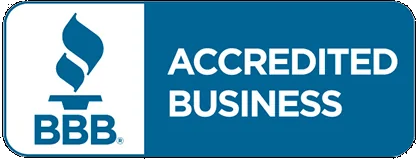

A Guide to Mortgage Refinancing for a Brighter Financial Future
Refinancing offers lower rates, shorter terms, and equity access. Learn why evaluating your goals and working with a mortgage broker is essential.
Are you feeling overwhelmed by the idea of refinancing your home loan? We're here to help you make sense of the process and explain why it could be a wise financial decision. Refinancing your mortgage can provide various benefits that can save you money, and we'll guide you through some of the key points to remember.
What is Refinancing?
Refinancing is the strategic process of replacing your existing mortgage with a new home loan. In essence, it offers you the opportunity to enhance your current mortgage situation. This involves obtaining a new mortgage with favorable terms to lower the interest on your old loan or utilizing the equity in your property to payoff high interest debt that never seems to go away, receive cash-out for home improvements, or cover the costs of educational expenses. It might sound complex, but rest assured, it's a manageable journey.
Reasons to Refinance
There is an array of compelling reasons that might prompt you to consider refinancing:
- Lower Interest Rates: One of the most common motivations is securing a lower interest rate, potentially leading to reduced monthly mortgage payments or significant savings over the life of the loan. This extra cash flow can be a game-changer, providing you with more money each month to save or use for other essential household expenses. Working with a wholesale Mortgage Broker may give you access to different loan products that offer lower rates.
- Shorter Loan Terms: With a shorter loan term, the most significant advantage is the reduction in the total interest costs over the life of the loan. When you refinance to a shorter term, such as switching from a 30-year to a 15-year mortgage, you'll typically secure a lower interest rate. This lower rate, combined with the shorter loan period, results in significantly less interest being paid over time. Opting for a shorter loan term may result in slightly higher monthly payments, however you will accelerate the rate at which you build equity in your home. With each monthly payment, a larger portion goes towards your principal balance, and less goes to the bank as interest. This means you're chipping away at the amount you owe much quicker and can translate into significant savings over the life of the loan, potentially tens of thousands of dollars or more.
- Transitioning from Adjustable Rate Mortgages to Fixed Rate Mortgages: For those currently holding an adjustable-rate mortgage, considering a switch to a fixed-rate mortgage can be a good financial move. Fixed-rate mortgages present a reliable and steady option as the interest rate remains constant throughout the entire loan term. Adjustable-rate mortgages come with an element of unpredictability, subjecting borrowers to fluctuations in their monthly payments influenced by ever-changing market conditions. Opting for the transition to a fixed-rate mortgage offers the assurance of financial security and stability, especially if your intention is to remain in your home for an extended period of time. It is always best to have a licensed Mortgage Broker review your personal goals to determine if a fixed-rate mortgage is right for you.
- Cash-Out Refinances: With a cash-out refinance, you can access your home equity. The amount of available equity us the difference between your home's value and your current outstanding mortgage balance. Most borrowers will use these funds to pay off high-interest debts, finance home improvement projects, or even cover the cost of your child's college education. However, it is essential to keep in mind that accessing your home equity comes with risks. You could end up owing more than your home is worth if the real estate market takes a significant dip. In many cases, the interest on mortgage debt is tax-deductible. This means that you may enjoy tax advantages when repaying the cash-out refinance, making it even more cost-effective compared to other financing options.
Is Refinancing Right for You?
Determining whether refinancing is a suitable option hinges on various factors that you should carefully weigh.
- Financial Goals: Consider your s objectives. The first step is to determine your short-term and long-term financial objectives. Are you looking to lower your monthly payments, shorten your loan term, access cash for home improvements, or secure a lower interest rate? Identifying your goals will help you make informed decisions throughout the refinancing process. For those with educational expenses, such as college tuition for yourself or your children, a cash-out refinance can offer a competitive financing solution. The interest rates on mortgage loans are typically lower than those on student loans or personal loans, potentially reducing the overall cost of education.
- Credit Score: Your credit score plays a pivotal role in securing favorable refinancing terms. If your credit score falls within the exceptional (800+) or very good (740-700) range, you're better positioned to secure a loan with a lower interest rate.
- Future Plans: How long do you intend to stay in your current home? Refinancing involves closing costs, and it may take several months or even years to recoup these expenses and realize savings. If you're planning to relocate in the near future, this might not be the most favorable option. If you intend to stay in our current home, it could offer long-term financial benefits.
- Home Improvements: Many homeowners choose cash-out refinancing to fund home improvement projects. Whether you're looking to renovate your kitchen, add a new bathroom, or make structural enhancements, this option provides a cost-effective way to invest in your property and increase its value.
What are the Steps to Refinance Your Mortgage?
- Gather Lan Related Documents: Prepare your financial documents, including pay stubs, tax returns, bank statements, and any other relevant paperwork. Lenders will require these documents to assess your financial stability and eligibility for refinancing.
- Work with a Licensed Mortgage Broker: Research and compare different brokers to find the one that offers the best terms for your needs. Consider factors like interest rates, closing costs, and customer service when selecting a Mortgage Broker.
- Submit an Application: Once you've chosen a Mortgage Broker, complete the online mortgage application. Be prepared to upload detailed financial information and necessary documents to underwrite your file.
- Receive Loan Estimate: After submission, the lender will provide a Loan Estimate outlining the terms, interest rate, closing costs, and monthly payments associated with your refinanced mortgage. Review this document carefully.
- Lock in Your Rate: If you're satisfied with the terms offered, you can lock in your interest rate to secure the rate that was quoted to you. Be aware that rate locks have expiration dates.
- Appraisal and Underwriting: The lender will typically order an appraisal to assess the value of your property and ensure it meets their lending criteria. The underwriting process involves a thorough review of your application, credit, and financial documents.
- Close the Loan: Once your application is approved, and all conditions are satisfied, you'll schedule a closing with the attorney. At the closing, you'll sign the necessary documents, and the funds from your new loan will be used to pay off your existing mortgage and any other debt you've requested to be paid off. In Massachusetts and Rhode Island there is a 3-day "right of recession" before the loan funds.
If you're thinking about exploring the benefits of a mortgage refinance, reach out to Onshore Mortgage, LLC and speak with Grant R. Menard today. I will take the time to provide additional guidance, answer your questions, and help you explore your refinancing options. Your brighter financial future may be just a conversation away!

Latest Posts


Grant R. Menard MLO NMLS# 17308
CLICK HERE
Onshore Mortgage

Massachusetts Division of Banks NMLS#MB1995582
CLICK HERE
The information contained in this site has been prepared by an independent third party and is distributed for educational purposes only. This is designed to give helpful tips on the mortgage process and is not intended to give legal advice.
Information is considered reliable but not guaranteed. This is not a pre-qualification, pre-approval, loan approval or commitment to lend. We arrange but do not make loans.
© 2020 Onshore Mortgage, LLC. all rights reserved.


.webp)
